 Libri di Werner Jaeger su Unilibro.it
)
Libri di Werner Jaeger su Unilibro.it
)
|
|
2023 |
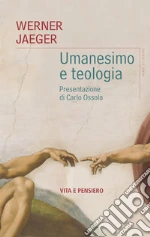 Title :
Umanesimo e teologia
Title :
Umanesimo e teologiaAuthor: Jaeger Werner Publisher: Vita e Pensiero Dopo 'Paideia', il monumentale saggio sulla formazione dell'uomo greco, divenuto uno dei cardini della riflessione culturale della nostra epoca, Werner Jaeger ricerca, nella conferenza del 1943 che qui riproponiamo, le radici dell'Umanesimo europeo. E le trova aprendo una via diversa rispetto alla convinzione consolidata secondo cui l'Umanesimo nasce da una rottura rispetto al Medioevo 'teologico' e a favore di un ritorno alla classicità centrato su una nuova concezione della natura umana. È vero, come ricorda qui lo stesso Jaeger, che gli umanisti rinascimentali ammiravano e desideravano far rivivere l'antica cultura della Grecia e di Roma e ritenevano il Medioevo un periodo barbaro che aveva interrotto il progresso della civiltà classica, ma il loro rifiuto era indirizzato principalmente alla forma degenerata della tradizione scolastica, con il risultato di offuscare la grande portata 'umanistica' di autori medievali - primo fra tutti san Tommaso, ma anche Dante - che seppero arricchire di universalità il pensiero di Aristotele e di Platone. Il cristianesimo, fondato sull'Incarnazione, trae da essa la ragione profonda della dignitas hominis, riprendendo il lascito greco della virtù come 'conversione' dal mondo dell'illusione sensibile al mondo dell'essere vero e unico che è il bene assoluto e desiderabile. Lungi dal rappresentare una rottura, il Medioevo emerge dunque come il compimento dell'anelito a quell'«Umanesimo integrale» che, pochi anni prima della conferenza di Jaeger, Maritain aveva così formulato: «L'uomo è chiamato a un destino migliore che a una vita purament € 13,00
Scontato: € 12,35
|
|
|
2004 |
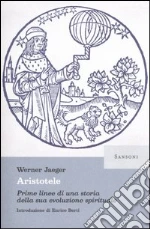 Title :
Aristotele. Prime linee di una storia della sua evoluzione spirituale
Title :
Aristotele. Prime linee di una storia della sua evoluzione spiritualeAuthor: Jaeger Werner Publisher: Sansoni Un Aristotele dialettico, sfaccettato, quasi 'platonico', considerato nella pienezza dell'interazione tra la sua figura storica e la sua persona filosofica: questo è l'inatteso ritratto che Werner Jaeger ricostruisce a partire dai testi e dai frammenti spesso a margine del 'canone' aristotelico consacrato dalla tradizione. Pubblicata nel 1923, quest'opera sconvolse gli studi di antichistica stabilendo un nuovo modello ermeneutico che per mezzo secolo si trovò al centro di un acceso dibattito. I paradigmi della ricerca filologica sono mutati, ma questo saggio di enorme impatto critico rimane una pietra miliare degli studi classici, in particolare per l'analisi delle contraddizioni interne alle concezioni aristoteliche. € 24,00
|
|
|
2003 |
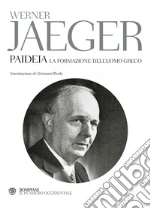 Title :
Paideia. La formazione dell'uomo greco
Title :
Paideia. La formazione dell'uomo grecoAuthor: Jaeger Werner Publisher: Bompiani Jaeger (1888-1961) è stato uno dei più grandi interpreti del pensiero antico e il fondatore del 'Terzo Umanesimo', insieme a Julius Stenzel. Si è imposto a partire dagli anni venti del Ventesimo secolo soprattutto per la sua interpretazione storico-genetica di Aristotele. In questo testo, considerato il suo capolavoro, Jaeger interpreta la genesi, lo svolgimento e l'essenza della 'Paideia', ossia della formazione spirituale dell'uomo greco e ritiene che essa sia da recuperare per superare la crisi spirituale dell'Europa del Ventesimo secolo. € 85,00
Scontato: € 80,75
|
|
|
2002 |
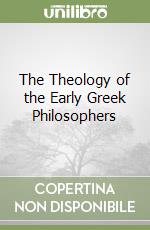 Title :
The Theology of the Early Greek Philosophers
Title :
The Theology of the Early Greek PhilosophersAuthor: Jaeger Werner Wilhelm Publisher: Wipf & Stock Pub € 30,60
|
|
|
1986 |
 Title :
Paideia: Vol 2
Title :
Paideia: Vol 2Author: Werner Jaeger Publisher: BERTRAMS PRINT ON DEMAND Werner Jaeger's classic three-volume work, originally published in 1939, is now available in paperback. Paideia, the shaping of Greek character through a union of civilization, tradition, literature, and philosophy is the basis for Jaeger's evaluation of Hellenic culture. Volume I describes the foundation, growth, and crisis of Greek culture during the archaic and classical epochs, ending with the collapse of the Athenian empire. The second and third volumes of the work deal with the intellectual history of ancient Greece in the Age of Plato, the 4th century B.C.--the age in which Greece lost everything that is valued in this world--state, power, liberty--but still clung to the concept of paideia. As its last great poet, Menander summarized the primary role of this ideal in Greek culture when he said: 'The possession which no one can take away from man is paideia.' € 26,80
|
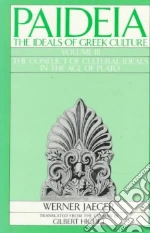 Title :
Paideia: Vol 3
Title :
Paideia: Vol 3Author: Werner Jaeger Publisher: BERTRAMS PRINT ON DEMAND Werner Jaeger's classic three-volume work, originally published in 1939, is now available in paperback. Paideia, the shaping of Greek character through a union of civilization, tradition, literature, and philosophy is the basis for Jaeger's evaluation of Hellenic culture. Volume I describes the foundation, growth, and crisis of Greek culture during the archaic and classical epochs, ending with the collapse of the Athenian empire. The second and third volumes of the work deal with the intellectual history of ancient Greece in the Age of Plato, the 4th century B.C.--the age in which Greece lost everything that is valued in this world--state, power, liberty--but still clung to the concept of paideia. As its last great poet, Menander summarized the primary role of this ideal in Greek culture when he said: 'The possession which no one can take away from man is paideia.' € 38,90
|
|
1985 |
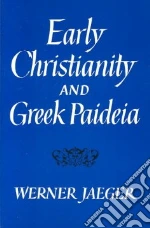 Title :
Early Christianity and Greek Paideia
Title :
Early Christianity and Greek PaideiaAuthor: Werner Wilhelm Jaeger Publisher: HARVARD UNIVERSITY PRESS This small book, the last work of a world-renowned scholar, has established itself as a classic. It provides a superb overview of the vast historical process by which Christianity was Hellenized and Hellenic civilization became Christianized. Jaeger shows that without the large postclassical expansion of Greek culture the rise of a Christian world religion would have been impossible. He explains why the Hellenization of Christianity was necessary in apostolic and postapostalic times; points out similarities between Greek philosophy and Christian belief; discuss such key figures as Clement, Origen, and Gregory of Nyssa; and touches on the controversies that led to the ultimate complex synthesis of Greek and Christian thought. € 15,90
|
|
|
1983 |
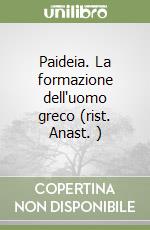 Title :
Paideia. La formazione dell'uomo greco (rist. Anast. ) (3)
Title :
Paideia. La formazione dell'uomo greco (rist. Anast. ) (3)Author: Jaeger Werner Publisher: La Nuova Italia € 22,52
|
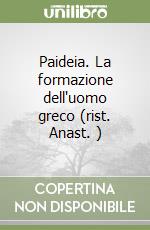 Title :
Paideia. La formazione dell'uomo greco (rist. Anast. ) (2)
Title :
Paideia. La formazione dell'uomo greco (rist. Anast. ) (2)Author: Jaeger Werner Publisher: La Nuova Italia € 23,71
|
|
1982 |
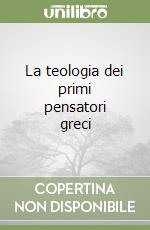 Title :
La teologia dei primi pensatori greci
Title :
La teologia dei primi pensatori greciAuthor: Jaeger Werner Publisher: La Nuova Italia € 16,84
|
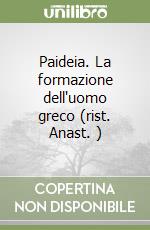 Title :
Paideia. La formazione dell'uomo greco (rist. Anast. ) (1)
Title :
Paideia. La formazione dell'uomo greco (rist. Anast. ) (1)Author: Jaeger Werner Publisher: La Nuova Italia € 25,67
|
|
1968 |
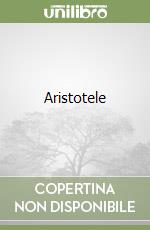 Title :
Aristotele
Title :
AristoteleAuthor: Jaeger Werner; Calogero G. (cur.) Publisher: La Nuova Italia € 31,61
|
|
|
1960 |
 Title :
Scripta minora
Title :
Scripta minoraAuthor: Jaeger Werner Publisher: Edizioni di Storia e Letteratura € 82,63
|